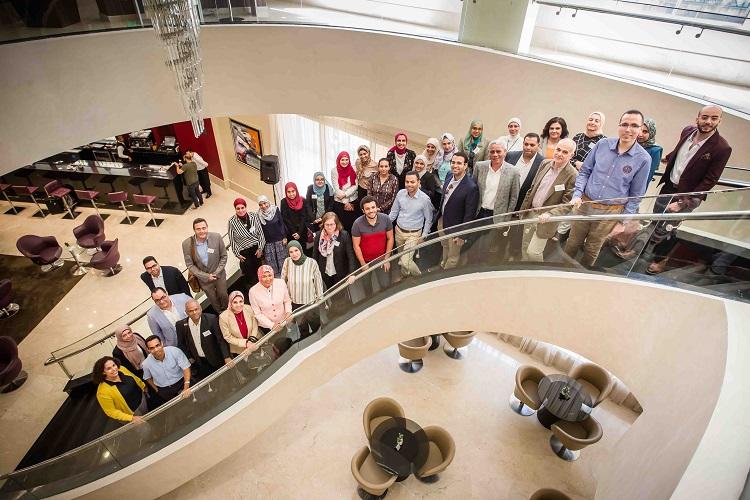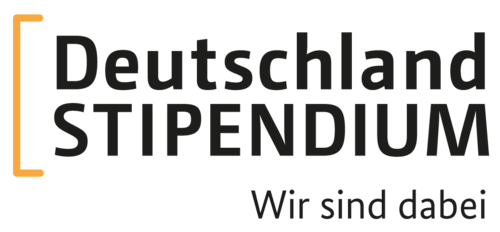“Fake Medications: Challenges, Global Responses and Current Research”
21.09.2019
Two-days workshop organized by the Cairo Liaison Office of FU Berlin on fake medications and its impact on researchو industry and patients. International scholars as well as representatives of the private and public pharma sector took part in the workshop to share and exchange their different perspectives. The second day was concluded by announcing the winner of the workshop's poster competition.
 Photocredit: Michael Asaad
Photocredit: Michael Asaad
The Cairo Liaison Office of Freie Universität Berlin organized on the 24th and 25th September a workshop on “Fake Medications: Challenges, Global Responses and Current Research” in Cairo, Egypt. The workshop was held as a follow-up to the workshop that was held in London in 2018 between Freie Universität Berlin and King’s College London. Local and international scholars as well as representatives of the private and public pharma sector were eager to take part in this workshop to share and exchange their different perspectives on such a pressing issue. Similar to the previous workshop, the Cairo meeting promoted the interdisciplinary scholarly approach to combat the growing phenomenon of fake medications. Towards this end, the Institute of Pharmacy represented in Prof. Dr. Maria Kristina Parr and the Institute of Social and Cultural Anthropology represented in Dr. Mustafa Abdalla, Freie Universität Berlin have been working closely together to find solutions and to tackle this issue from different viewpoints. Both presented their work during the workshop, which lead to a number of very interesting discussions with the attendees.
On the first evening, the Key-note speaker of the conference, Dr. Reychad Abdool, International Consultant to the United Nations Office on Drugs and Crime (UNODC) as well as to the African Union, presented the African aspect of the problem. He highlighted not only the shocking numbers and examples of this wide spread “epidemic” but also presented the possible solutions and responses that were implemented in various regions of Africa to fight this phenomenon and to improve the public health. The key-note speech was followed by a panel discussion with Dr. Abdool giving deeper insights on the African level, Prof. Dr. Parr, who briefly showcased the German perspective, as well as Prof. Dr. Mohamed Farag, Member of the Egyptian National Drug Committee, who demonstrated the Egyptian context. The discussions following the panel showed how global the problem really is and how global the interaction and cooperation should be to reach the common goal which is the elimination of this phenomenon.
While the first evening served as an initial networking platform, the second day was designed to give space to scientific presentations and discussions all around the fake medications issue. The Efficacy of Medication was the first topic to be discussed from different angles. The experts demonstrated through their presentations that the efficacy of a medication is often affected significantly not only by its active pharmaceutical ingredient (API) but also by its formulation. Both the API and the formulation can change over time and because of storage conditions. Manufacturers evaluate these by using accelerated storage tests and provide documented storage conditions and shelf-life. However, in some countries, medications may not be stored under optimal conditions and/or may be kept longer than the documented shelf-life. Furthermore, counterfeiting of licensed medications may often occur. In the second session, that was headed by Dr. Mustafa Abdalla of FU Berlin, the toxicity of false medications was explored by panelists from the Cairo University, New Giza University and King’s College London. The panelists displayed in the various presentations that toxicants are being used as part of the analytical evaluation of products. Many degradation products are more toxic than the parent active ingredient and counterfeit products often have large concentrations of toxic agents. The discussions that were held after the presentations proved how important and relevant the issue of toxicity is to the issue of fake medications.
During the following session, Prof. Parr of Freie Universität Berlin headed a panel discussion with experts from the New Giza University, the Cairo University and the Pharmaceutical Regulatory body that is part of the Egyptian ministry of Health to discuss the concept of Biosimilars. While the concept itself is relatively novel to the Egyptian Pharma market, the experts demonstrated that this industry is taking strong steps in the right direction.
Due to the significance of the socioeconomic and cultural Aspects of Drug Use, Failure and Patients’ Perception, a whole session was dedicated to this topic. The goal of this program point was to discern not only the ways in which medications are handled, stored and/or manipulated, but also the socioeconomics that affect their efficacy and how these conditions lead to people’s changing perceptions of medications and to a general lack of trust in pharmaceuticals. Additionally, it was made evident through various examples that in certain countries, people’s use/abuse of medications is immense.
Last but not least, and in a continuous attempt to encourage young scientists, a poster competition was launched in the frame of this conference. The winner, Sara Aboras from the Faculty of Pharmacy, Alexandria University, was awarded a research stay within the working group of Prof. Parr at FU Berlin.
Check out the photo album of the workshop here

